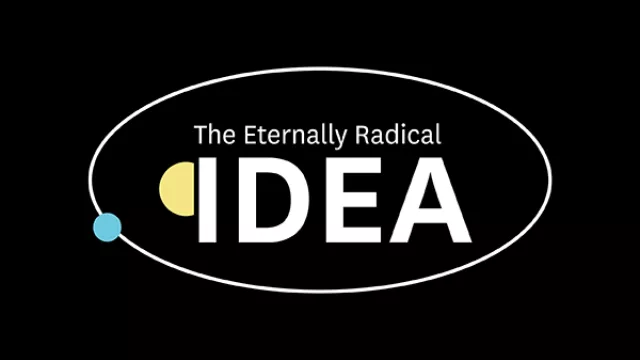Table of Contents
Rooting out bad arguments against free speech

Shutterstock.com
Kudzu growing up the post of a sign along the side of the road.
If you find yourself almost anywhere in the southeastern United States in warmer months, you are bound to encounter great swaths of landscape entirely covered by big, leafy kudzu vines. In some places, it looks pretty. The vines can easily take over hillsides, powerlines, and abandoned buildings, and the resulting soft green landscape can be picturesque. But beneath the kudzu is suffocation. The invasive vines, which can grow up to a foot a day, smother trees and other plants by blocking their light and monopolizing root space.
While most of my Kentucky yard is kudzu-free, keeping it that way seems to require constant vigilance, and my daily walks almost always involve ripping up at least half a dozen kudzu sprouts. Chemical treatments can help (though often at the expense of other plants), but even in areas of the yard where my home’s previous owners religiously used herbicide, the kudzu comes back.
In this constant pruning of an invasive species, I find myself thinking about defending free speech. Like kudzu, sometimes arguments against free speech look appealing from afar, but up close, they’re suffocating. The arguments opposing or misunderstanding free speech take various forms, often masquerading as protective measures, such as advocating censorship of “hate speech” or supporting restrictions on “misinformation.” But when these arguments are successful, they stifle our understanding of our world and those around us.

Advocates for restricting expression often claim that certain speech can cause mental distress and emotional harm. They argue that “words are violence” and must be tightly controlled. However, while it’s true that words can hurt, grappling with difficult and even offensive speech is part of living in a pluralistic society, and there will always be a clear and important difference between offensive words and a blow to the head.
The reality is that free speech is the antithesis of violence. Broadly speaking, we have only two ways of getting our fellow citizens to see things from our perspective: persuasion and force. Illiberal societies use violence or the power of the state to enforce compliance with a set of views, but in our liberal democracy, we debate ideas. Equating even ugly and offensive speech with violence suggests that real violence is a reasonable response to speech, setting off a vicious cycle that destroys the foundations of a free civilization.
Similarly, “hate speech isn't free speech” deserves a lot of pruning. It’s a common misconception, and it often comes from a place of compassion, but a fundamental issue remains: Who gets to decide what “hate speech” is?
One person’s impassioned advocacy for Palestinian statehood is another person’s call for the genocide of Jewish people. One person’s advocacy for the rights of women and girls is another’s transphobia. There is no “hate speech” exception to the First Amendment because it’s dangerous to outsource deciding what counts as hate speech to government officials. After all, to whom would you entrust the power of deciding what you are allowed to say or hear?
Likewise, the idea that “lies aren’t protected by the First Amendment” sprouts up every few years, especially during election season. Of course, some lies — such as defamation and fraud — aren’t constitutionally protected. But, generally, lies — or misinformation and disinformation, as they’re often called today — are protected because it’s up to each of us to suss out what’s true. Some lies protected by the First Amendment may be harmful, but giving the government broad authority to decide what’s true would be a far greater disaster.
Free speech advocates like FIRE are committed to perpetually fighting for a healthy, vibrant landscape for free expression, even though it’s a fight that will never be fully won.
Think about satire and parody. Comedy often relies on an element of untruth to make us laugh. But when those in power are given the authority to decide what’s true and what’s false, they define it in a way that benefits them — and that insulates them from being the butt of anyone’s joke.
Slapping terms like “misinformation” or “disinformation” on the arguments against free speech is intended to make them seem new, but they’ve all been around for decades — more often centuries. Blasphemy, heresy, lese-majeste — these are ancient concepts. Censorship is a universal human instinct that we each have to repeatedly resist if we are to live in a liberal society. Even when it looks like people have finally understood the dangers of censorship after being subjected to it, they often unlearn the lesson quickly once their opposition starts saying things they find ugly or wrong.
For example, FIRE has long argued that even when instances of cancel culture do not violate the First Amendment because they involve private rather than government actors, punishing people for their speech undermines the culture of free expression that undergirds our free speech laws. For years, many conservatives understood this, as they railed against individuals losing their livelihoods for stepping over the newly narrowed cultural boundaries of acceptable speech. Yet when many of those conservatives find themselves in positions of power, they rush to punish people who offend their side of the ideological spectrum — even when the offense ultimately amounts to nothing more than a single, off-color joke.

Hate speech laws backfire: Part 3 of answers to bad arguments against free speech from Nadine Strossen and Greg Lukianoff
FIRE co-founder Harvey Silverglate has talked about how he thought the organization would have a 10-year lifespan. A well-known civil liberties lawyer, he believed that the absurdity of campus speech codes was so obvious that administrators would quickly see the problems and free speech would be restored on campus. But 25 years later, America’s campuses still roil with free speech controversies, and FIRE has expanded its role to tackle the growing crop of off-campus free speech issues — not in search of further dragons to slay, but in response to growing cries for help in the world off-campus
My yard will likely never be entirely free of kudzu. Even if I somehow manage to dig out all of the sprouts that pop up in my own yard, the vines often sneak over from my neighbor’s field. Still, it’s worth the constant effort on those daily walks, because I am committed to a healthy, vibrant yard.
Free speech advocates like FIRE are committed to perpetually fighting for a healthy, vibrant landscape for free expression, even though it’s a fight that will never be fully won. By perpetually pushing back on those pesky and stubborn arguments against free speech, we can nurture an environment where diverse perspectives can grow and flourish.
Recent Articles
Get the latest free speech news and analysis from FIRE.

The Federal Bureau of Investigation (of protected speech)

The paper was her lifeboat — UMD called it interference

The federal charges against Don Lemon raise serious concerns for press freedom


